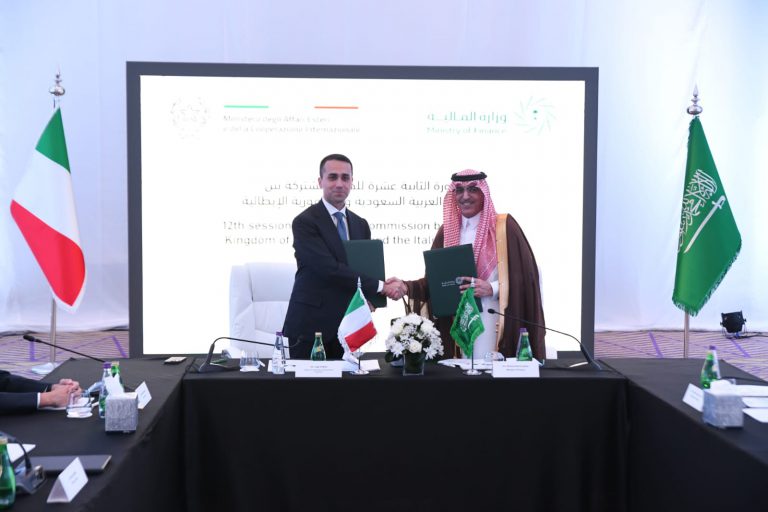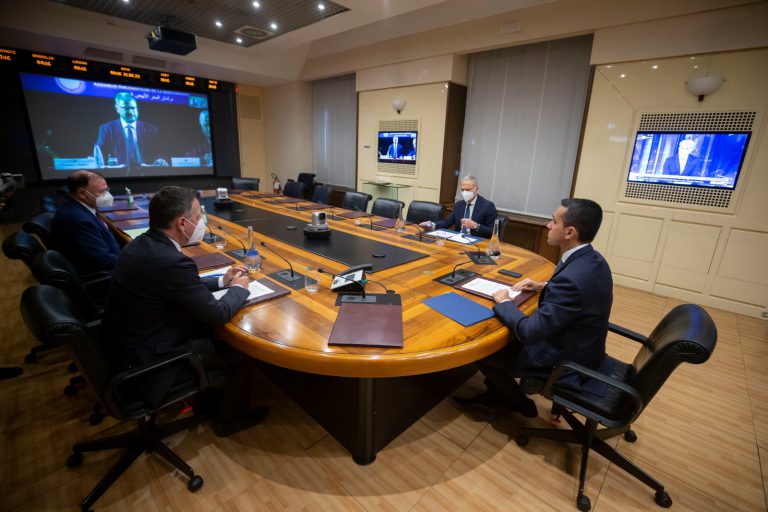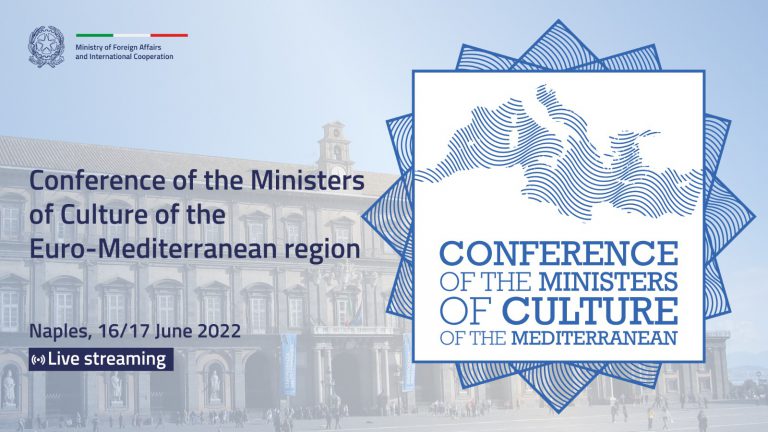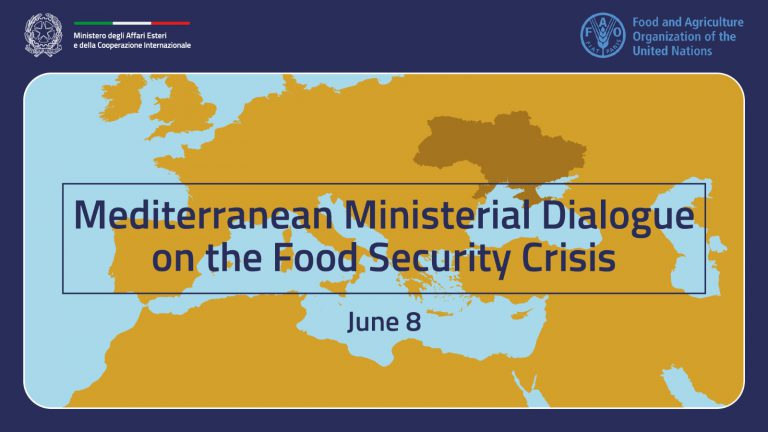Minister for Foreign Affairs Giulio Terzi, who will be opening the Milan Cooperation Forum, summarised the 67th UN General Assembly, in which he participated with Premier Mario Monti. Syria and the Italian marines being held in India were major issues that remain unresolved, but the minister’s overall summary reveals a patient effort aimed at restoring Italy as a point of reference in Europe for the Mediterranean. Giulio Terzi returns as a foreign minister to the UN, where his diplomatic career took him many times in the past until his appointment as head of the Italian permanent mission to the UN. He laughs when asked what it feels like to go home. «Strange, nice. I’m very concerned though about the Security Council’s paralysis. We seem to have slipped back to the 1990s with this veto-fuelled defence of spheres of influence».
The technocratic government is 10 months old now. What does it mean to take part in it as a minister?
«For me it means travelling much more than I did as an ambassador. The work of these past few months has been mainly one of weaving, and I think the overall design is starting to become visible».
Premier Monti, here at the UN for the first time, declared his willingness to continue beyond the expiration of the technocratic government were the country to ask. Would that willingness be his own personal or also of his staff?
«Premier Monti’s words confirm the spirit of service to the State that has underpinned his efforts over these past months. Those are the values of the entire Monti government».
The situation regarding our marines in India is still in suspension. And yet the UN Charter assigns jurisdiction over soldiers on international missions to their country of provenance.
«As I have repeatedly said, the situation is unacceptable and inadmissible. We await with trepidation and faith the Indian Supreme Court’s ruling. International law is on our side. The same law that regulates peacekeeping operations in which India, itself a great democracy, actively participates and that, therefore, we are certain wishes to respect».
Mr. Minister, Italy has supported the Arab Spring, but disappointment seems to prevail among the populations of the region.
«Nevertheless, a process of change has begun, surely with risk situations still to be resolved – I am thinking of the disarmament of Libya – and major signals were launched this week at the UN. I am thinking of Egyptian President Morsi’s speech, which left room for the hope that moderate Islam in the Mediterranean can become a stronger interlocutor for Europe. Relations with Egypt remain crucial for Italy, from both political and economic standpoints, given that they represent one-fifth of our trade with that region. The meeting of the G8 countries with its Mediterranean partners here in New York, attended also by Hillary Clinton, centred on the theme of the development of small and midsized enterprises in Arab Spring countries. Italy received Clinton’s strong appreciation for what we are doing, since 98% of these economies consists of small businesses. Economic cooperation becomes a factor in stabilisation – and not least on the political level».
Are the preparatory meetings and the efforts of this week a sign that Italy is resuming its traditional attention to the Mediterranean and Africa?
«Let’s say a Mediterranean stretching eastward and southward, with the intention of making room for a diplomacy of growth through economic accords and a political diplomacy aimed at channelling and facilitating those countries’ communication with Europe. This is a natural undertaking for Italy, given its geographical location, and absolutely essential to the region».
Does the signing on Friday of the TAP accord on a trans-Adriatic gas pipeline with Greece and Albania fit into this context?
«This is a strategic project for Europe as a whole that will allow the gas coming from the Caucasus to get to the countries of the EU and reduce their dependence on other sources. The idea is to make Italy a sort of Mediterranean/European hub. We intend to continue to pursue this route; we have made an appointment with Secretary of the Union for the Mediterranean Sijilmassi. If we look a bit further toward Africa, there is the Sudan/South Sudan collaboration agreement on trade collaboration and shared oil resources – an agreement long-supported by Italy with a view to the security of the entire region».
But there is also Syria: you have said that the carnage must end, but also that the Libyan model of international intervention was not a possibility.
«It is not. But we must confront the humanitarian emergency involving hundreds of thousands of refugees, whose numbers are destined to increase. The only positive thing that emerged from our meetings in Rome before the General Assembly was that the various Syrian opposition groups seem to have decided to coordinate themselves. The international community can for now work in the margins. Talk has resumed of humanitarian corridors in the areas no longer controlled by the regime, we are working on that».
But the decision lies with the Security Council, which is blocked.
«The saddest thing about going back to the UN as foreign minister is to see a paralysed Security Council, to go back to the 1990s, while UN reform remains absolute. Humanitarian corridors in Syria have to be guaranteed by international military forces and for that reason need the consent of the Security Council».
Heading up the Assembly’s agenda along with Syria was the Iranian nuclear question, particularly Israeli Premier Netanyahu’s speech and his red line drawn across the bomb-shaped graphic timeline.
«All the countries of the region and the European Union are very concerned about Iran’s nuclear programme. Israel’s security is fundamental and Netanyahu wanted to show clearly that he intends to stop the process before it is possible to build a bomb, confirming once again that the notion of an attack on Iran is among the options on the table. We agree that Iran has to be prevented from having nuclear military capacity, but we believe that the sanctions remain an effective instrument for the moment».
Former Secertary General’s biography is presented
«Hammarskjold, revolutionary former UN leader» (L’Eco di Bergamo)
30 September 2012
L’eco di Bergamo
Valeria Robecco
«Never measure a the height of a mountain until you have reached the top, then you will see how low it was». According to Minister for Foreign Affairs Giulio Terzi these words contain «former UN Secretary-General Dag Hammarskjold’s most important legacy, which survives in the United Nations of the 21st century».
At the Italian Cultural Institute in New York yesterday the Italian minister joined Deputy Secretary General Jan Eliasson in presenting a book by Susanna Pesenti, journalist on the Bergamo newspaper the Eco, on the second Secretary General of the UN, in office from 1953 to 1961, for which the minister himself wrote the preface.
Hammarskjold, who died one night over 50 years ago in the skies over Congo (then Northern Rhodesia) during a peace mission to that African country, is described as a multifaceted person of great human and political appeal, and above all a reformer. “When Dag Hammarskjold died on 18 September 1961 I was a young cadet in the Swedish navy. I decided on that day that I would serve the United Nations”, recalls Eliasson.
According to Terzi, Hammarskjold was a «complex person, motivated by strong and deeply-rooted ethical values and moved by his sense of a mission that was perhaps impossible for those times but of major importance even in a long-range timeframe».
Peacekeeping, the evolution of the UN system, impartiality and independence: these, according to the minister, are the three aspects of a legacy that often intersects with Italy’s efforts abroad, and with our country’s choice of a multilateral approach centred on democracy and dialogue. Congo then, Syria now: «We must reform the Security Council as soon as possible so that the United Nations will have the necessary effectiveness to resolve international crises», Terzi stressed.







